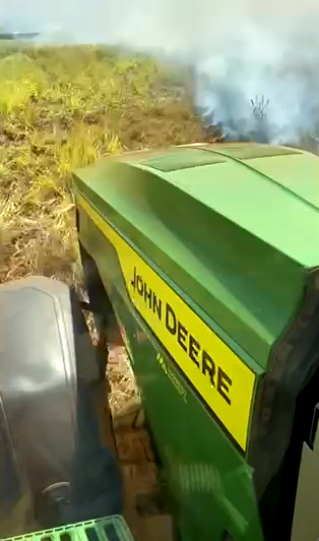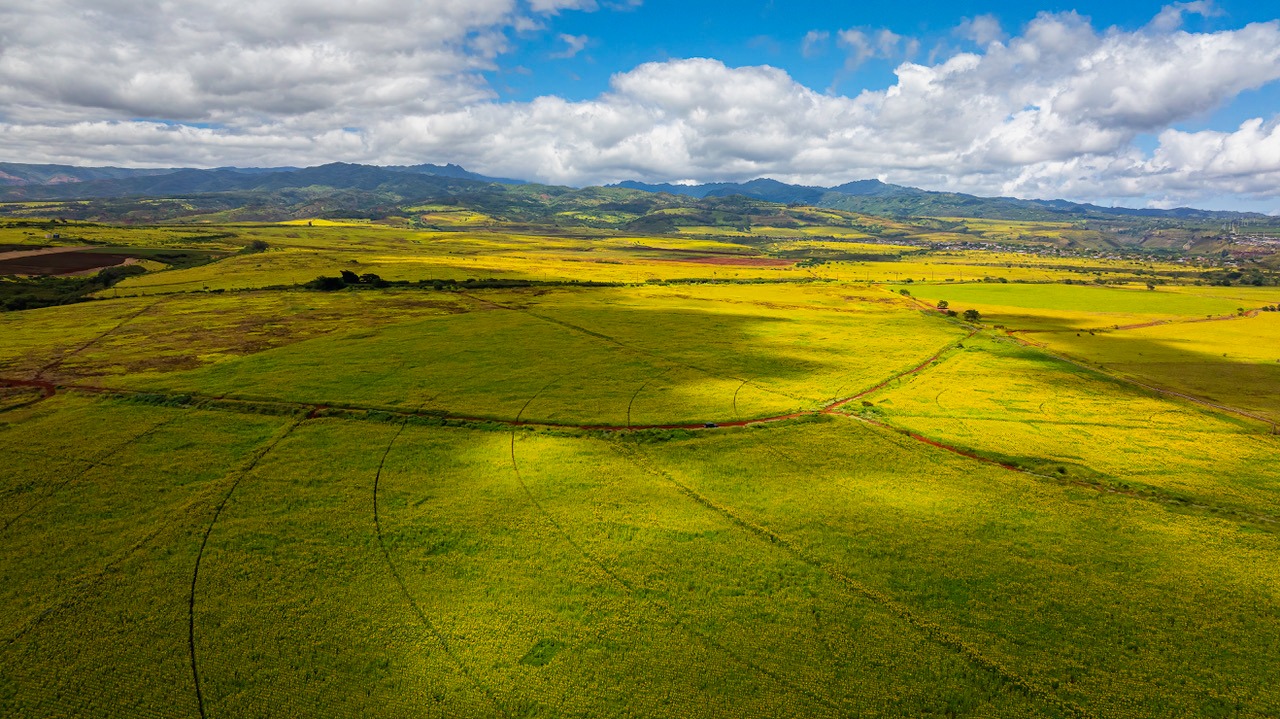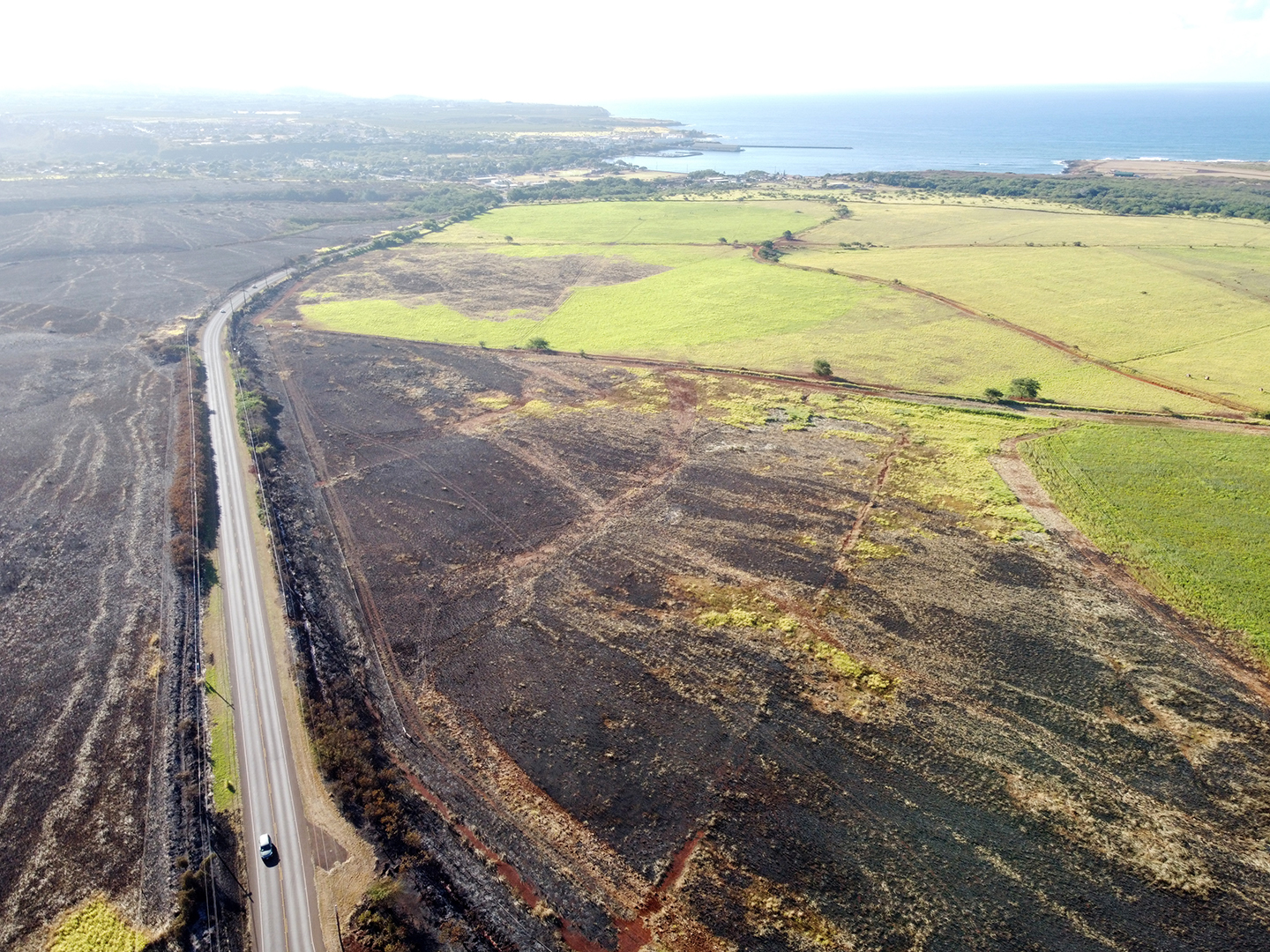
As the fire approached, Pacific Biodiesel team members George Twigg-Smith and Reggie Aguda used the biodiesel-fueled tractor to cut fire breaks to help prevent the spread of flames.
On July 15, a fire raced from Hanapēpē to Kaumakani, Kauaʻi burning 1,000 acres. Pacific Biodiesel Director of Agriculture Operations James Twigg-Smith reported on the day’s events:
“Once the word of the oncoming fire reached us, our team on site that day, Pacific Biodiesel Production Manager George Twigg-Smith and Crush Mill Operator Reggie Aguda, began to disc around our field area with the tractor to provide a fire break.”
We received a call from land owners Gay & Robinson, who saw what our team was doing, and asked us to create a fire break near the road in an effort to stop the advancement of the fire towards Kaumakani village,” he continued.
“Coordinating their efforts with the Kauaʻi Fire Department and other agencies, our guys created that fire break, which helped slow the fire’s progression toward Kaumakani’s village.”
In the aftermath of the fire, it’s noted that the presence of Pacific Biodiesel’s planting contributed significantly to providing a fire barrier as the field was actively growing and under rotation.
“We are grateful to the Kaua’i Fire Department and other agencies for their efforts in combating the fire. I’m also super proud of our guys. They were discing up close to the fire and didn’t back away at all. I’m also proud of our entire team – having these crops on the field saved countless acres and helped to prevent the loss of a historic village,” Twigg-Smith said.
The dramatic shots below show the fire damage blocked by the semi-circular shape of Pacific Biodiesel’s sunflower field caused by the center pivot irrigation system that waters the field.

The aerial photos of Pacific Biodiesel’s sunflower field (in green) demonstrate the importance of productive agriculture when it comes to fire mitigation. Photo credit: Gay and Robinson
The photo below was taken of the sunflower field for Pacific Biodiesel just a week before the fire by professional photographer, Travis Morrin.

Photo credit:Travis Morrin @traviskeahi_photos
These pictures illustrate the importance of productive agriculture when it comes to fire prevention. And, agriculture with a farm-supplied source of above ground water, such as our center pivot, was another factor in saving the sunflower fields on Kauai,” said Pacific Biodiesel Co-Founder Kelly King. “Supporting regenerative agriculture is a huge advantage to our circular economy, our food security and resilience against wildfires!”

